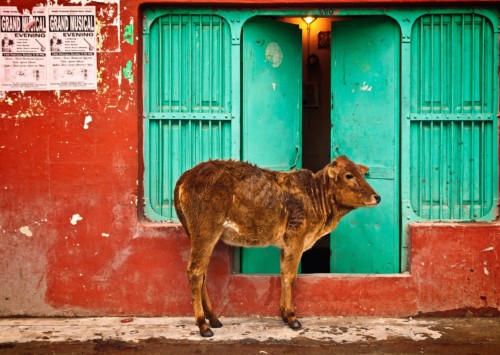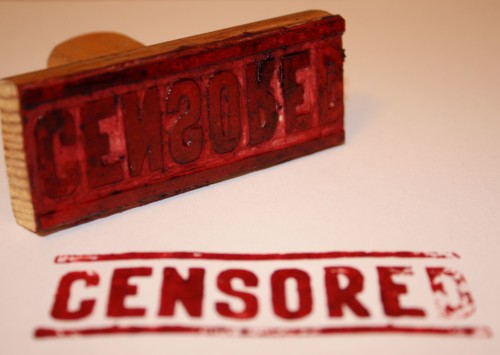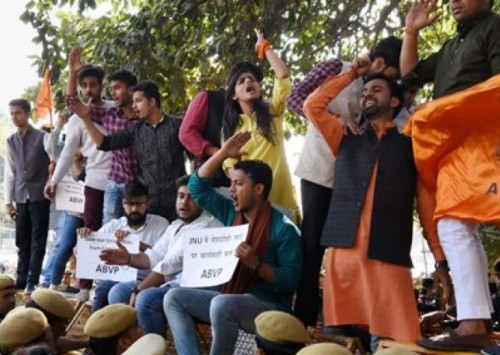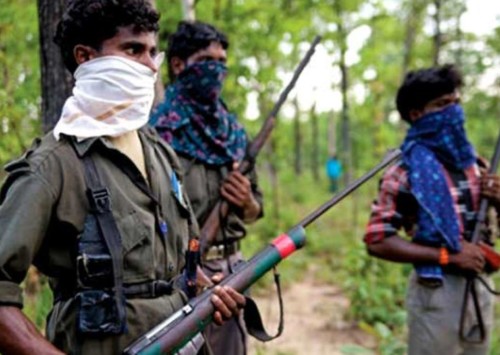India slips to 136 on Press Freedom Index
Reporters Without Borders has noted India’s diminishing press freedom, in addition to a Human Rights Watch’s report pointing out government inaction on violence, revealing the threats to freedom that Indian citizens currently face.
A hint of saffron in the air has led to India ranking an abysmal 136 out of a total of 180 countries in the the 2017 World Press Freedom Index. This comes from Reporters Without Borders or Reporters Sans Frontières (RSF), an international non-governmental organisation that promotes and defends freedom of information. Neither friendly, nor tolerant, the increasingly violent machinery of ‘Hindutva’ has also been reported by a Human Rights Watch to be free from harsh criticism by the current government in power. This assertion comes from observing the Bharatiya Janata Party (BJP) led government’s responses (or lack of the same) in connection to violent activities undertaken by vigilante groups.
World #pressfreedom Index revealed this morning: your country is ranked between Norway and North Korea. But where? https://t.co/SCOM57vG73 pic.twitter.com/UAprOz6JmL
— Christophe Deloire (@chrisdeloire) April 26, 2017
“With Hindu nationalists trying to purge all manifestations of ‘anti-national’ thought from the national debate, self-censorship is growing in the mainstream media,” stated the report by RSF. India has slipped three places from 133 in 2016. The debate over the ideas of nationalism have turned loud. “Journalists are increasingly the targets of online smear campaigns by the most radical nationalists, who vilify them and even threaten physical reprisals. Prosecutions are also used to gag journalists who are overtly critical of the government,” the report suggested. Some of the disturbing trends that mark personal attacks on journalists can be marked by the development of terms such as ‘presstitutes’, online rape and/or death threats apart from intimidation.
Critical areas, such as the ‘red corridor’ in states such as Chhattisgarh and Jammu & Kashmir, have seen numerous journalists being threatened physically as well as in other forms, including bans and censorship. Understandably, national security is in question when considering these places. However, without a clear picture of the ground realities, citizens remain unaware of violations of rights, demands of inhabitants and militant groups that constitute these regions. This has resulted in polarised sensibilities that are based on information carefully selected and propagated to this larger mass.
The report has highlighted a specific example of the same. “On the first day of a wave of protests in Kashmir in July 2016, the internet was cut by the military and was often interrupted thereafter to prevent communication between protesters and prevent coverage by the media and citizen journalists,” stated the report, adding, “Journalists working for local media outlets are often the targets of violence by soldiers acting with the central government’s tacit consent.”
Explaining how the gagging of voices is being undertaken, the report stated, “Some prosecutors invoke Section 124a of the penal code, under which ‘sedition’ is punishable by life imprisonment.” However, the report clarified, “No journalist has so far been convicted of sedition but the threat encourages self-censorship. The government has also introduced new foreign funding regulations to limit international influence.”
Saffron threat intensifies
Not only was RSF’s report a pointer of the threat that looms, a report released around the same time by Human Rights Watch (HRW) has urged the government to adequately address the ongoing violence in the country in the name of cow protection. In the recent report, HRW highlighted the activities of self-styled vigilante groups. “Self-appointed ‘cow protectors’ driven by irresponsible populism are killing people and terrorising minority communities,” said Meenakshi Ganguly, South Asia director for HRW. “The government should condemn this violence and take prompt action against those responsible for these attacks or face allegations of complicity.”
India is tolerating self-appointed “cow protector” vigilantes who are brutally attacking Muslims and Dalits. https://t.co/oPAmYo9XRH pic.twitter.com/Y0bCbfVpiv
— Kenneth Roth (@KenRoth) April 28, 2017
Explaining how the government was sending a message through its inaction, she added, “The mild admonitions from BJP leaders when Muslims and Dalits are lynched over cows sends a message that the BJP supports this violence.” She added, echoing a sentiment that captures the current situation in India, succinctly, “Instead of a government that took office on the promise of universal development, it now appears to be one unwilling to protect those most vulnerable.”















